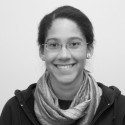Where is the revolution?
SARAH BREWINGTON
NEWS EDITOR
@sgbrew42
The bubble. A sticky, gossamer, figurative bubble held all the social justice issues of society neatly packed away for another time and another discussion. This bubble held movements like feminism, black equality, gay rights, sexual assault and general equality. This bubble, too sticky to touch, was often blown away in the hopes that the topics inside would eventually go away. The bubble has popped, or at least I think so. And out of it poured the discussion of Ferguson, the sexual assault initiative “It’s On Us,” the fourth wave of feminism, the acceptance of transgender individuals, and the discussion of gay marriage.
However, there is one issue that I have not seen discussed yet. Last week, three Muslim students at the University of North Carolina at Chapel Hill, Yusor Mohammad Abu-Salha, her husband, Deah Shaddy Barakat, and her sister, Razan Mohammad Abu-Salha, were all shot in the head by the couple’s neighbor. Although the details of the story are still being verified, it got me, and hopefully many of us, thinking.
From this bubble poured many conversations, but the treatment of the Muslim population and the Arab populations in America was not one of them.
In my Islam, Women and Literature class, we read the book “How Does it Feel to Be A Problem?” by Moustafa Bayoumi. Borrowing the title from W.E.B. Du Bois, Bayoumi tells the stories of Arab people who struggle with their own identities in Brooklyn, N.Y., after 9/11. Some of the characters in the book are arrested for possible terrorist connections and others are treated unfairly because of peoples’ various prejudices and misunderstandings.
So when the Chapel Hill Shooting was reported last week, it seemed rather odd that I did not hear a voice raising awareness about the mistreatment of the Arab and Muslim populations. There is a hashtag on twitter #MuslimLivesMatter and USD hosted a candlelight vigil this week. I am pleased that our campus is aware of the injustice done. However, the hashtag has not garnered as much attention as other awareness campaigns.
Where is their revolution? I know there are organizations that support Muslim voices, but these voices do not get past the walls of their organizations.
I hope that the treatment of the Arab and Muslim populations will enter the conversation. This topic will add another layer to the movement of social justice and equality.
